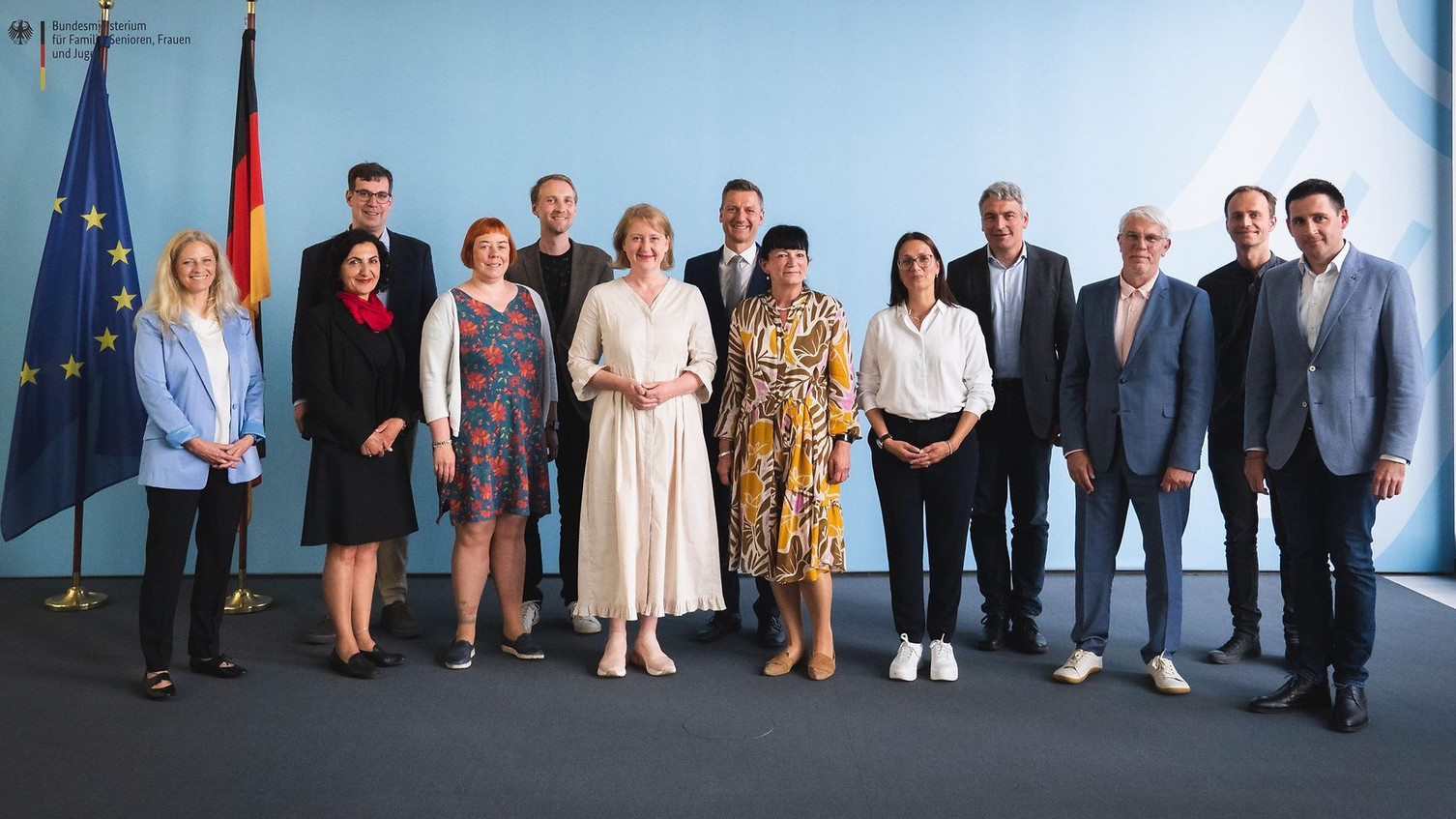“We have a lot of communication work to do”
Series: “How does science inform politics?” Prof. Dr. Philipp Sandermann
2025-09-15 In the series “How does science inform politics?”, we introduce Leuphana researchers who share their expertise in policy advisory boards. Professor Dr. Philipp Sandermann contributed his expertise to the 17th edition of the Children and Youth Report. The report examines the conditions and future challenges for children and young people in Germany.
The 17th Children and Youth Report was actually submitted to the Federal Ministry for Education, Family Affairs, Senior Citizens, Women and Youth (BMBFSFJ) back in September 2024. But when Professor Dr. Philipp Sandermann talks about his work on the expert commission for this report, it becomes clear that the task is far from over. In fact, the professor of social pedagogy at Leuphana is currently traveling extensively throughout Germany to present the findings and discuss them, for example, with representatives of local authorities. “This communication work is important, not least in order to transfer our findings to individual situations on the ground,” says the researcher.
He and 13 other experts spent two and a half years compiling and writing the report. The members were appointed in 2022 by Lisa Paus, then Federal Minister of the BMBFSFJ. In every legislative period a report like this is written. Every third report—including this one—is a “comprehensive report.” These reports not only cover specific topics but also summarize the entire state of research on young people in Germany and the infrastructure of child and youth welfare in Germany.
In addition, they are translated into guidelines for the necessary policies for the coming decade. The expert commission is composed not only of researchers but also of representatives from organizations such as the Brandenburg Competence Center for Child and Youth Participation, the Federal Association of Workers' Welfare, and the Bavarian Youth Ring.
Sandermann's research focuses intensively on trust, and he was responsible for writing a chapter of the report on this topic, but: “None of the chapters were written by just one person,” the scientist emphasizes: “Everyone proofread everything and contributed to the writing,” he reports from inside the commission's work. And: “Everything in the report was written by us.”
Working on a monograph with 13 other people is both challenging and rewarding. “We consider ourselves a group,” he says, describing the feeling among his colleagues. The expert commission met 22 times in person, each time for retreats lasting one to one and a half days. “In total, we worked together in person for 40 days.” In addition, there was the time spent writing between meetings.
The commission was supported in its voluntary work by four research assistants from the German Youth Institute, who were accompanied by a representative from the ministry. “Her role provided a framework and ensured very good communication,“ recalls Sandermann, but she had no influence on the content of the commission's work, the researcher emphasizes with regard to the process: ”We maintained our independence, and that is also crucial for the legitimacy of such a report." It serves as a guide for future measures not only in federal politics, but also at the state and local levels. Philipp Sandermann also refers to this as a translation service: that is, identifying opportunities to apply scientific findings in practice and drawing conclusions for the local situation.
Sandermann estimates that it will take between four and twelve years for the findings of reports such as the one he co-authored to be fully implemented in practice. He cites two reasons why people are surprised by such timeframes. On the one hand, it is not always possible to transfer scientific findings into practice in exactly the same form. “This has nothing to do with deliberately ignoring scientific findings,” emphasizes the social pedagogue, “but rather with drawing conclusions appropriate to the situation at a different level of specificity. This is additional work that has to be done, taking time and energy.” On the other hand, in the case of the Children and Youth Report, implementation is hampered by the departmental structure of politics. "The concerns of young people are not only addressed in the BMBFSFJ. Climate issues, migration issues, defense or health policy issues, for example, are assigned to other ministries, even though young people will be the most affected by climate change because they will be around the longest.“ Sandermann emphasizes that a lot of political work takes place behind the scenes and is not initially visible to the public: ”Ms. Paus, for example, has tried hard to influence other ministries. The outcome does not always reflect everything that has been attempted.“
For him personally, the work has also been enriching: “I have learned an incredible amount,” says Philipp Sandermann. Some research ideas have also emerged. “And I'm delighted that our students can find the current status of the literature in the commission's report,” explains the Leuphana professor. This will make some of their research for term papers easier for the time being.

